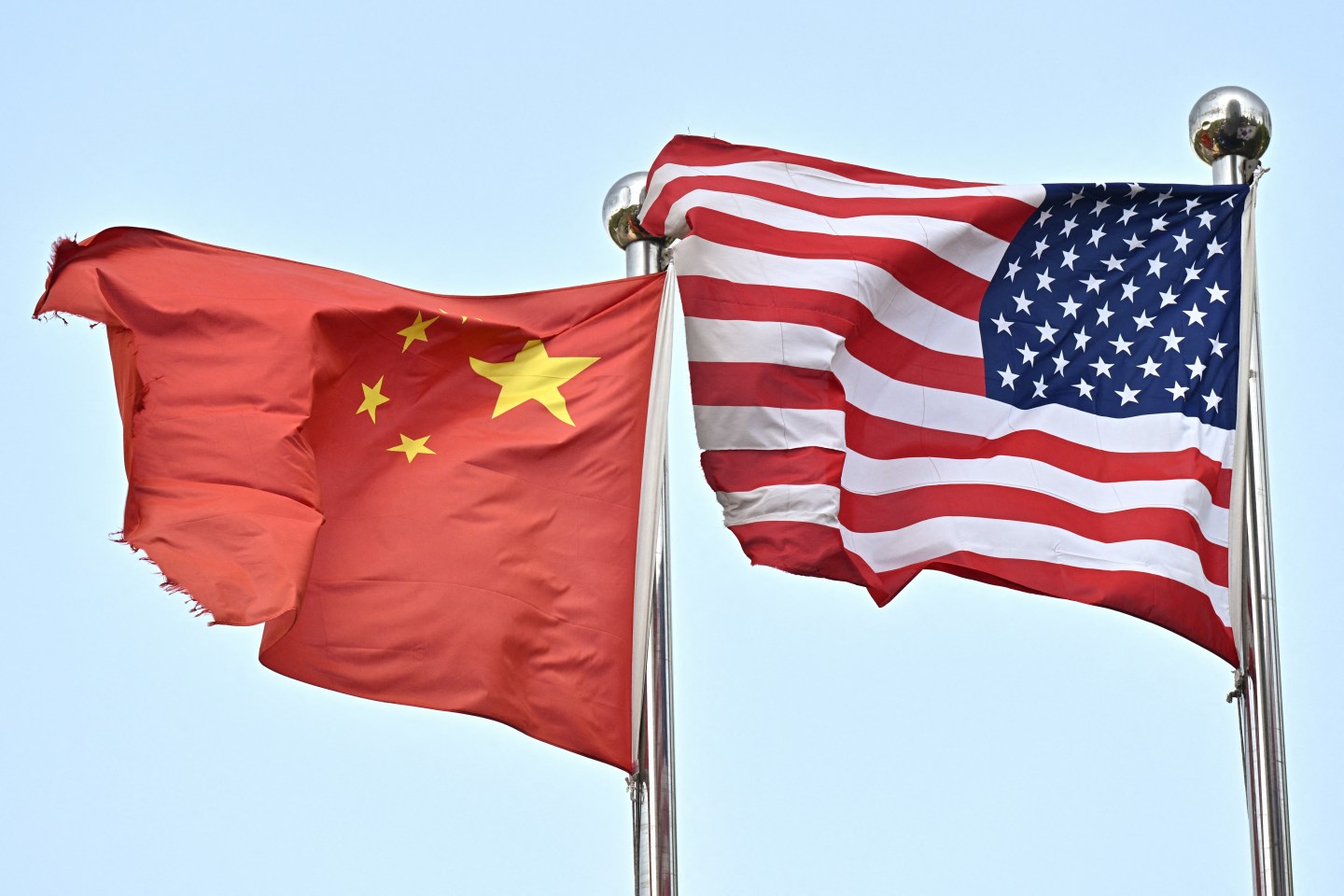It’s been a real pleasure and privilege getting to spend this month with you. Thank you for the emails, suggestions and feedback. I’m handing the raceAhead keys back over to Ellen McGirt. If you’d like to connect in the future, I’m on Twitter and LinkedIn.
And as a parting gift: if you’re not currently a paid subscriber to Fortune, the code RACEAHEAD will get you 50% off your subscription when you sign up. SMI out.
For this edition of 3 Questions With, I interviewed Lisa Jackson, Apple’s vice president of Environment, Policy and Social Initiatives. She’s a chemical engineer who previously served as the administrator of the Environmental Protection Agency, where she was the first Black person to hold that position. In her role at Apple, Jackson oversees the company’s $100m Racial Justice and Equity Initiative in addition to leading the company’s environmental efforts.
What would you do if you had more power?

LJ: I love that question. I’m often talking to young women about power, and about how it’s not intrinsically a bad thing and that you should be looking to use it, and it all depends on how you choose to use it.
For me, I think it’s really about this moment in climate change, and it’s one I hope won’t fade the same way some of the moment around racial justice has.
Climate change affects people who often times have the least means, or who are unable to adapt because of where they live— they might be an island nation, or from an area where migration is difficult and dangerous.
So climate change disproportionately impacts certain groups, and those are the people who the money in climate change, the spending and the resources, never seems to reach.
I would work to ensure that those benefits, those resources reach those groups. If there are jobs to be created, if there are new opportunities, that we make sure this isn’t a game that is only for the people who are able to adapt.
I would challenge people at other companies to seek out and search for opportunities to spend their money and their resources in communities wisely, to ensure that they work more directly with those communities. I think you have to go beyond the usual and established world of climate mitigation.
And I would urge companies to bring equity and justice into the work that they’re doing. One of the things we did with our Racial Equity and Justice Initiative is to combine it with our environmental work. There’s no justice without climate justice. We need everyone to be part of a low-carbon economy, we need Black people and brown people to be part of it.
When we did carbon removal work in Colombia, we worked with mangrove farmers because you have to consider the livelihoods of the people in an ecosystem. You have to make their lives better and not worse through the actions you’re taking. When people assess carbon removal, they need to ask the question: what does this mean for the community? You have to have a finer lens than just the amount of carbon that might be removed, and you have to think like a member of the community that you’re impacting.
Almost every company will need to do some work on carbon offsets. Where those offsets come from, and how we judge the quality, has to include the community effect.
What do you find yourself recommending to everyone right now?
LJ: A combination of things. On the personal side, during the pandemic I started working on my pilates practice. I am amazed at how strong I’ve gotten. It’s the best functional exercise in the world. And I do yoga in the mornings and it’s awesome.
On the work front— people are really stressed right now. The IPCC report that came out this week didn’t help. There’s a lot of people feeling the need to do something, whether it’s about climate or voting rights. You need to feel like you are a part of the solution.
When it comes to climate, I always say there’s three big levers we can pull. The first is how we get around, our transportation decisions. The second is what we eat. And the third is our energy choices.
Not everyone can afford solar panels, but you might have more control over how you get around. Choosing alternative forms of transportation, or public transit, or electric vehicles, even car sharing can all make a difference.
When it comes to food, I’m not vegan, but I follow a vegetable-forward diet. I try to eat local, really making an effort to find a farmer’s market and cut down on food miles, cut down on meat. I feel better as a result, and it’s a very conscious set of choices that you have to make.
You’ve got to start at home.
Who’s someone whose work more people should know about?
LJ: Octavia Butler—I can’t believe I missed this whole part of my life. I was recently at a charitable auction and I saw a piece of art, a portrait that was just so arresting. It’s called “Octavia Butler Dressed for Perseverance” by Stacy Lynn Wadell. I buy this piece, and then I start reading about Butler, and then I have that experience of seeing her and her work everywhere.
I finished Kindred, and next I want to get into Parable of the Sower.
On the work front, as part of our Racial Equity and Justice Initiative we committed to an impact accelerator for brown and Black-owned businesses working in the environmental space. Apple knows a thing or two about growing businesses and scaling them, and we’re going to be announcing the first group in that accelerator very soon. They’ll be people working in energy and solar and green chemistry and recycling, and hopefully theirs will be names that everybody will continue to know.
This edition of raceAhead was edited by Wandy Felicita Ortiz.
On Point
Talk is cheap, fund action instead In this time of (gestures broadly at everything), I place a real premium on the kinds of action that drive change, create meaningful opportunities for folks, and that are led by people who’ve demonstrated they’re in it for the long game. Two people who fit this brief are Sherrell Dorsey and Cord Jefferson.
Dorsey is the CEO and founder of The Plug, a subscription-based media property that provides intelligence about and elevates the Black innovation economy (and which this year became available on the Bloomberg Terminal). Earlier this month, The Plug teamed up with Morgan Stanley to create case studies on the founders who’ve participated in the investment bank’s Multicultural Innovation Lab, which has been running since 2017. More than 40 companies have gone through the startup accelerator in that time, and those founders collectively raised more than $80m to date. Dorsey described the program as “the kind of résumé driver that can really open doors to other opportunities.” Dorsey is herself a graduate of an accelerator program, and she encourages any applicants who might be interested not to talk themselves out of it. Participants in the program receive $250,000 in exchange for an equity stake, as well as access to a dedicated Morgan Stanley mentor, marketing advice and support for monetization strategies. “Entrepreneurship is lonely, and especially as we’re still having to build digitally, having a pool of experts in your corner can really be helpful,” Dorsey said. “We want to ensure Black and brown founders know this opportunity exists, and can take advantage of it.” Applications to the accelerator are open through September 16 2021.
Cord Jefferson is an Emmy-award winning TV writer whose portfolio of shows includes Watchmen, The Good Place and Master of None. In November, Jefferson signed a deal with Warner Bros. Television Group that allowed him, as he put it, “to finally have the ability and some semblance of power to do something material” for the people who’d for years been asking him for advice and tips on how to switch from journalism into TV writing. Those writers’ rooms, like newsrooms, are significantly more homogenous than the audiences they purport to serve. “People are looking for life rafts,” Jefferson said. So he created a fellowship program named after his late mother, that provides journalists trying to make that leap with $25,000 in financial support, ongoing mentorship, and meetings with industry professionals. Originally, the fellowship offered two spots—Jefferson expanded it to three after receiving nearly 800 applications. “It was too heartbreaking to only do two,” he said. “The goal is to get [the fellows] staffed and to get them representation, like an agent or manager.” The inaugural class of fellows is Matthew Dekneef, Filipa Ioannou and Jordan Coley. “This is largely a test balloon to see if this experiment works,” Jefferson said. “I want to continue doing something to help and if it’s not this it will be something else.”
On Background
Nasdaq thinks your board could be better, maybe? Last week, regulators approved Nasdaq’s proposal to have companies listed on the exchange either diversify their boards or explain, in writing, why they couldn’t. It’s a move that’s been hailed by proponents of having people who aren’t only white men sit on the boards of publicly traded companies (and as our Term Sheet cousins explained, one that could even affect venture-backed private companies considering an IPO). Sarah Fortt-Lawson, an attorney at Vinson & Elkins in Austin, noted that the new policies “only serve to establish a floor, not a ceiling, and considering that the rules ultimately only require companies to explain their status quo, one could argue that the rules barely do even that.” However companies feel about these new requirements or similar efforts elsewhere, investors are taking notice. Fortt-Lawson cited the example of BlackRock (an absolutely massive institutional investor), which voted against the re-election of 1,862 directors at 975 companies because of a lack of board diversity. As Bloomberg reported at the time, BlackRock said last year that it planned to “push companies for greater ethnic and gender diversity for their boards and workforces, and says it will vote against directors who fail to act.” As Fortt-Lawson put it, “perhaps the best the new rules have to offer is the opportunity to have internal conversations about topics that might otherwise go undiscussed and unexplored.”
Mood board / The Big Move













